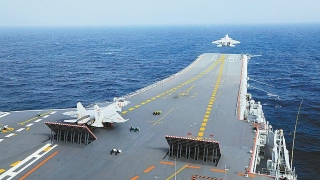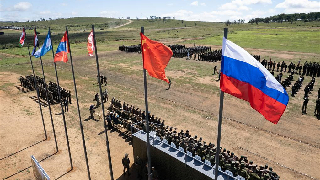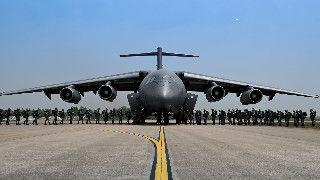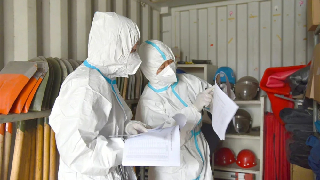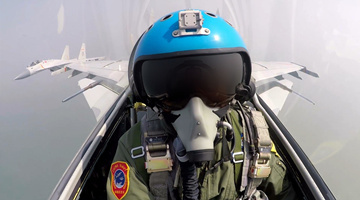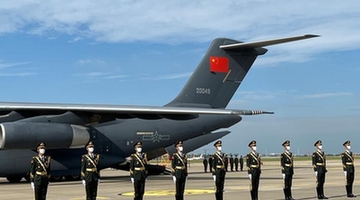By Chen Hong
On September 15, 2021, then-Australian Prime Minister Scott Morrison and leaders of the US and UK jointly announced the establishment of AUKUS, a trilateral security partnership,in a high-profile manner. To some extent, this can be regarded as an "alliance in alliance" in the traditional American alliance system. Morrison called it a "historic opportunity " with complacency. As of now when a year has passed, what has Australia gained from the strategic alliance?
According to the pact reached by the three countries, Australia canceled an estimated 90 billion Australian dollars (about $65 billion at that time) contracts with France for 12 conventionally-powered submarines , and instead bought eight nuclear-powered submarines capable of performing long-range missions from the UK and the US. This has been known as the "first pillar" of AUKUS. However, it is estimated that Australia may have to wait until 2040 to complete the building of its first nuclear-powered submarine according to the most optimistic estimates that the design and construction could have begun in September last year. On the one hand, Australia has to pay over 830 million Australian dollars (about $584 million at that time) in compensation to France; on the other hand, it needs to purchase the technology and equipment required for nuclear-powered submarine construction from countries such as the US and the UK at enormous costs. Even so, the Australian side is but ushering in a prospect unforeseeable.
As a makeshift, Australia proposed to acquire one or two US-made Virginia-class or Los Angeles-class nuclear-powered submarines at first. But it is extremely ironic that Rear Adm. Scott Pappano of the US Navy said recently that the US submarine manufacturing capacity is limited recently, and accepting additional orders from Australia would be detrimental to its (the US) own interests.
The Morrison government has failed this year's federal election, leaving the new government with such an unmanageable mess. The Australian public didn't know about AUKUS a year ago, nor now a year later. Neither the then Australian prime minister nor the newly-elected one has made a speech on this, with the AUKUS pact-related content yet to be unveiled.
As we all know, after WWII, Australia has completely stand by the US on foreign and security policies, regarding the US as its most important military ally, and willing to participate in almost every US military operation abroad at all costs. However, for Australia, the US has always been an "unreliable" friend.
On the other hand, the AUKUS pact does not stipulate whether the US is supposed to provide assistance when Australia's security is under direct threat. In the 1960s, when Australia saw the confrontation between Indonesia and Malaysia as a threat to itself, the Menzies government turned to the US for military support and got flatly rejected by then US President John F. Kennedy. After that, Australia has twice sought assistance from the US in the case of issues of Irian Barat and East Timor, which had also been ruthlessly rejected.
The Morrison government has intended to further bond Australia's future with the US hegemony strategy with the AUKUS. Australia's Defense Minister Richard Marles recently stated that Australia would get tactically integrated with its "strategic partners" including the US and the UK for coordinated operations.
Australia has always thought itself in a super-alliance with the US, but the fact is that the US guided by its egoistic foreign policy has not and will not put Australia's security and interests at the forefront. Former Australian Prime Minister Malcolm Fraser once said the US was the "most dangerous ally" to Australia. No wonder some Australian media have proposed to "reconsider the strategy of deep bond with the US" and questioned about "Can Australia relies on the US?"
(The author is the director of the Australian Studies Center of East China Normal University)
Editor's note: This article is originally published on huanqiu.com, and is translated from Chinese into English and edited by the China Military Online. The information, ideas or opinions appearing in this article do not necessarily reflect the views of eng.chinamil.com.cn.
